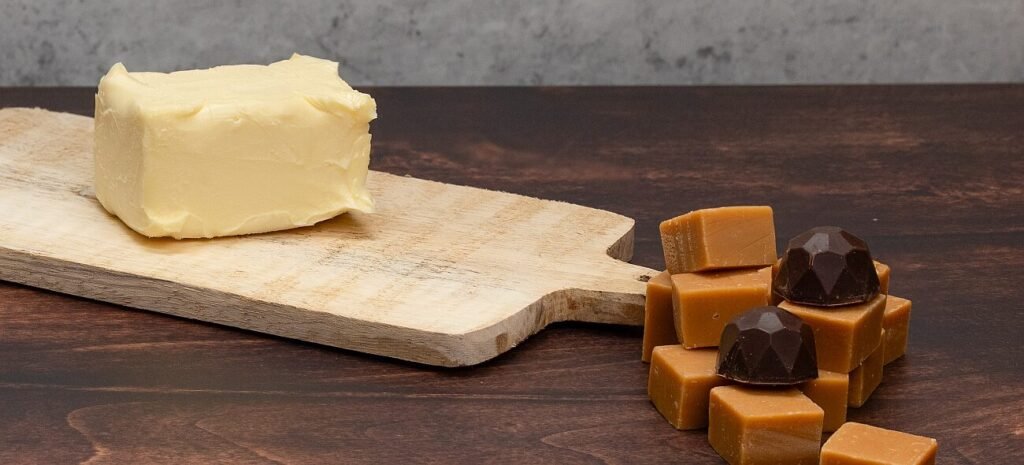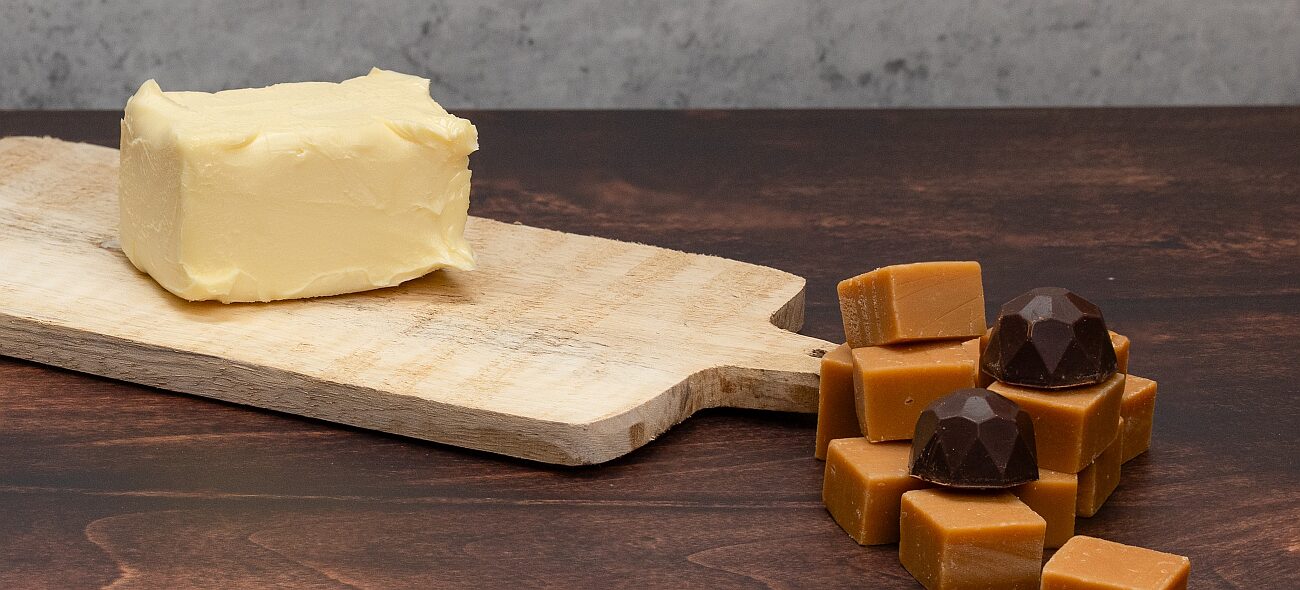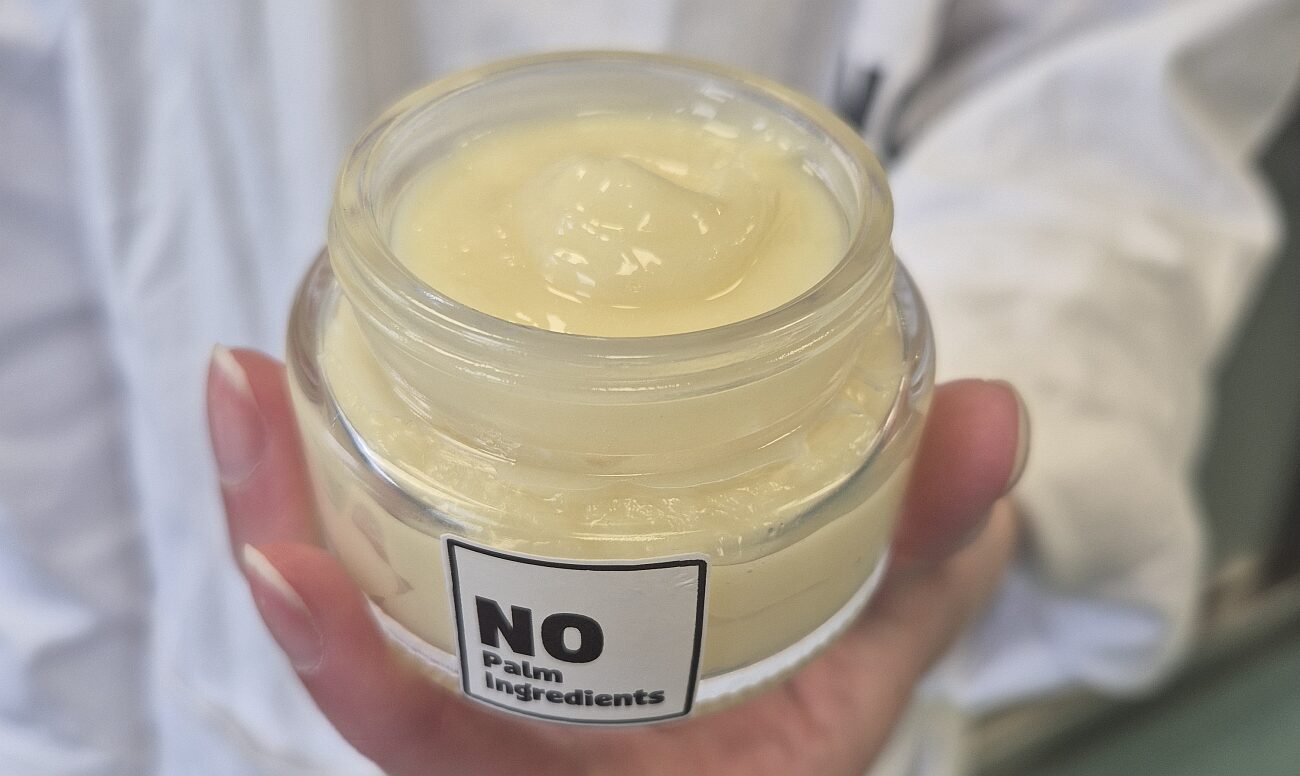
Dutch startup NoPalm Ingredients is teaming up with contract research organization NIZO Food Research to establish a demo facility at NIZO’s food innovation campus in Ede in the Netherlands to produce palm oil alternatives via fermentation.
By using existing infrastructure at the campus, NoPalm can build the site more quickly and cost-efficiently, said the firm, which currently operates a pilot line with a 400-liter fermenter but has scaled production further with a contract manufacturer.
Production at the demo site is expected to begin in the second half of 2026, with capacity increasing from hundreds of tons to 1,200t/year over over time, said COO Jeroen Blansjaar.
“This is the crucial step that paves the way for our first commercial factory, which we aim to build together with a side stream partner at their site. This significantly reduces risks, both for ourselves and for our partners.”
Demo plant the ‘right size to demonstrate industrial reliability’
Asked why NoPalm needs to build a demo-scale plant to de-risk its tech given that it has already achieved reasonable scale with contract manufacturers, Langhout told AgFunderNews: “We’ve validated our core process at pilot scale and in industrial fermenters at contract manufacturers, but a demo factory is the crucial step in proving reliable, continuous operations with integrated upstream and downstream processes under one roof.”
“Our process consists of four different steps: fermentation, two different drying steps and extraction. Each step was executed at a different CMO. Hence we have proven single process steps in isolation. What customers and investors need to see now is that we can run for months at a time from A to Z, hit the economics consistently, and deliver volumes to the market consistently.”
He added: “The demo facility will use fermenters in the 63,000-liter total volume, which is the right size to demonstrate industrial reliability and supply our partners with commercial volumes, while still being flexible for further portfolio development and customer R&D sampling.
“Our demo facility will produce around 1,200 tons of oil per year. A first commercial plant will be an order of magnitude larger, producing 6,000 – 10,000 tons per year, with capex about three times the demo factory’s and fermenters with a 200,000-liter total volume. So, the demo is big enough to de-risk technology and unit economics, but still modest compared to the full-scale factory.”
The demo facility will primarily run on dairy side streams, he revealed: “It’s a perfect feedstock: abundant, inexpensive, and already proven in our process. Over time, we will also test additional agro-industrial side streams — for example molasses or potato residues — to demonstrate the flexibility of our platform.”
The €5 million ($5.9 million) raised last year allowed NoPalm to complete CMO runs, secure customer traction, and finish engineering work, he said. “To build and operate the demo factory we are raising a Series A round, kicking off soon, complemented by grant funding and partner contributions. We have strong commitment from existing investors and are in advanced discussions with new investors to complete this round.”
Low-capex fermentation
Founded in 2021 in Wageningen by Lars Langhout and Prof. Jeroen Hugenholtz, NoPalm Ingredients works with oleaginous yeast strains that naturally produce high amounts of lipids. It does not genetically engineer them but uses directed evolution to enhance their performance, achieving fat accumulation of 60%.
It is initially focusing on mid-fraction palm-type oils rather than commodity oils, although its platform is capable of producing a wide range of fatty acid profiles, said Langhout.
“The way we’ve been able to do this so cheaply is by setting up low-capex fermentation, using brewery type fermenters and food industry waste streams as an input, which lowers the cost of raw materials, energy, and equipment.”
He added: “We have developed solvent-free downstream processing and are now actively developing approaches that cut energy use and capex. The demo plant is where we will validate those improvements at scale. It’s designed to be flexible, so we can run both the baseline process and the new DSP options, compare them, and then take the best setup forward into commercial factories.”
To tailor the profile of the fats, which he says could be labeled as fermentation-based yeast oils, NoPalm can change the parameters of the fermentation process, altering temperature, pH, and other conditions, he said. “We’re basically putting the yeast [cells] under stress so they make different types of oil and fat, some solid, some more liquid, enabling us to make different fatty acid profiles.”

Sustainable, deforestation free, and at price parity…
NoPalm is initially targeting the EU market, where firms will soon be required under the EUDR to prove that goods they are importing do not result from recent deforestation, forest degradation, or breaches of local environmental and social laws, says Langhout.
“Customers in Europe are looking for an alternative to palm oil that’s sustainable and deforestation free, but at price parity with the same functionality. And that’s what we are bringing.”
On the regulatory front, NoPalm does not need to file a novel food application in the EU, claims Langhout, but is instead “pursuing the Article 4 substantial equivalence route as our lipids are a true drop-in replacement with the same composition as conventional palm fractions,” he said.
In the US, it will be pursuing the self-affirmed GRAS route, “if it still exists,” he said.

No ‘green premium’
Asked what kind of premium buyers are prepared to pay for a ‘no palm oil’ positioning, he said, “In order to make real impact in this market, you need to be at price party or even offer a green discount.
“When we started, we knew we needed a process producing oils with the same functionality but also the same price [as palm oil fractions]. So we made design decisions to ensure price parity at scale.”
Watch our interview with Lars Langout at the SynBioBeta conference in May:
The post NoPalm Ingredients and NIZO plan demo-scale yeast oil factory in the Netherlands appeared first on AgFunderNews.